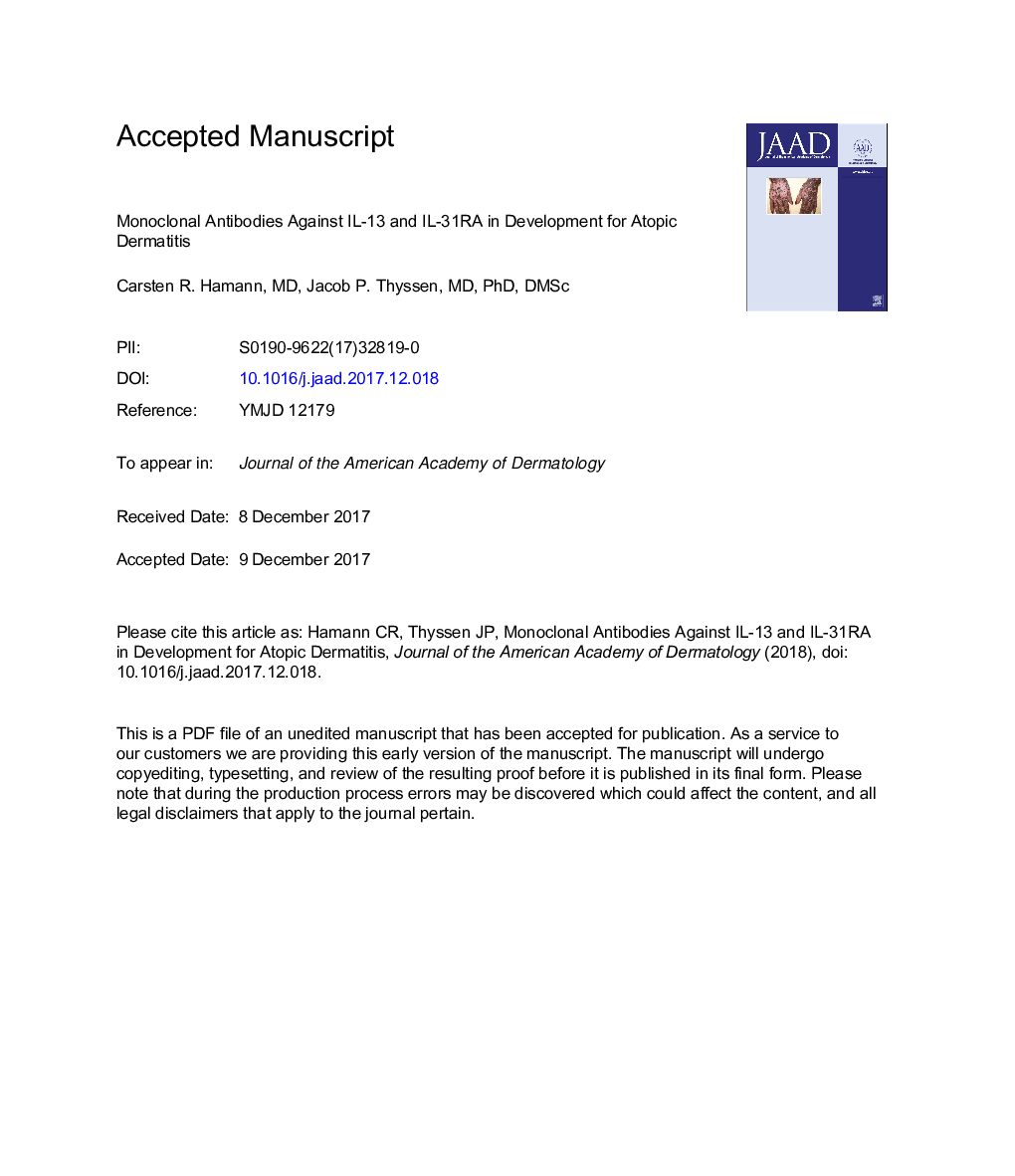| Article ID | Journal | Published Year | Pages | File Type |
|---|---|---|---|---|
| 8715277 | Journal of the American Academy of Dermatology | 2018 | 15 Pages |
Abstract
The interleukin 13 (IL-13) and IL-31 cytokines and inflammatory pathways have been identified as important for the pathophysiology of atopic dermatitis (AD). Monoclonal antibodies against IL-13 have been studied for the treatment of asthma since 2011. More recently, 2 phase 2 trials have been completed with these antibodies in AD treatment. In both trials, significant reductions of Eczema Area and Severity Index scores were seen. IL-31 is thought to play a role transmitting itch sensation to the central nervous system, and blocking IL-31 activity reduces itch in patients with AD. One phase 2 trial has been completed for a humanized antibody against IL-31 receptor alpha, which is 1 subunit of the IL-31 receptor complex. This study showed significant dose-dependent reductions in pruritus, Eczema Area and Severity Index scores, and markers of sleep quality. Initial clinical trials for monoclonal antibodies against IL-13 and IL-31 receptor A all show promise, although long-term safety and efficacy data are lacking. Nevertheless, these medications will likely play a role in the treatment of moderate-to-severe AD.
Keywords
TCSoncostatin M receptor βT helper 2EASITh2T helperJanus kinasec-Jun N-terminal kinaseSTATInvestigator's Global AssessmentIgAinterleukinAtopic dermatitisDipeptidyl peptidase-4STAT signal transducer and activator of transcriptionSignal transducer and activator of transcriptionvisual analogue scaleEczema Area and Severity IndexJAKTopical corticosteroidtopical corticosteroids
Related Topics
Health Sciences
Medicine and Dentistry
Dermatology
Authors
Carsten R. MD, Jacob P. MD, PhD, DMSc,
